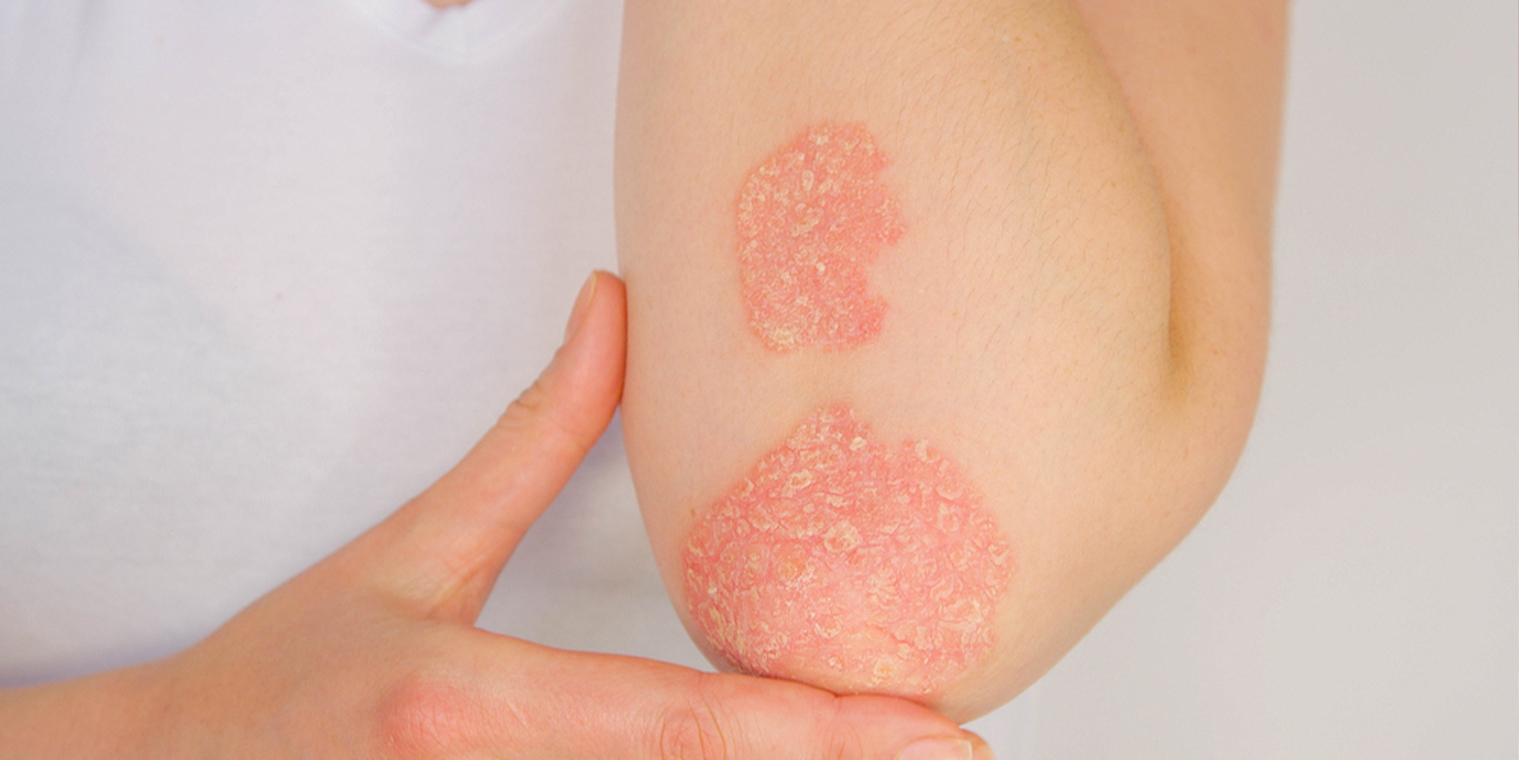
Psoriasis
Psoriasis
What is Psoriasis?
Psoriasis is an autoimmune disorder that causes the skin cells to grow rapidly, resulting in a buildup of dead cells in the skin surface. The skin develops red, thick, flaky, itchy patches on skin, which can bleed on itching excessively.
There are various types of psoriasis, ranging from large patches involving whole back, to small tiny patches on the whole body. It also affects wide variety of people, from children, to adults, to pregnant women. Psoriasis can develop over any area of your body, from scalp to nails to genitals.

Book An Appointment
Signs & Symptoms
Psoriasis can manifest on any part of the body, but typically appears on the scalp, elbows, knees, and lower back. The symptoms can vary from person to person, and some of the most common ones include:
- Red, inflamed patches of skin
- Silvery-white scales on the skin
- Dry and cracked skin that may bleed
- Itching or burning sensation, bleeding on excessive itching
- Thickened, pitted, or ridged nails
- Yellowish discoloration of nails
- Yellowish fluid-filled lesions on body, with surrounding redness.
Causes/ Triggers
- Infections
- Unsupervised use of steroids
- Pregnancy
- Excessive smoking
- Hormonal fluctuations
- Endocrinal disorders
Home Care
- Do not scratch on the affected area.
- Use coconut oil/ moisturiser liberally on body.
- Wear loose clothes, which do not rub on the affected area.
- Wash your head atleast every other day to remove all the dead cells.
- Do not self- medicate/ take injections without a dermatologist consultation.
- In case of any local infection, or fever or any other illness, start medicines early.
- Avoid drinking and smoking.
- Do not use steroids unsupervised.
Treatment
At Skinfinity Derma, we offer a wide range of treatment options to help you manage your psoriasis symptoms effectively. Our team of dermatologists will work with you to create a personalized treatment plan based on the severity and location of your psoriasis.
Some of the most common treatments we offer for psoriasis include:
- Topical medications: These are creams, ointments, and lotions that are applied directly to the affected area of the skin. These may vary from topical steroids to calcineurin inhibitors, and are decided based on the area and severity of involvement.
- Systemic medications: These are prescription medications that are taken orally or by injection. The type of medication is decided by your dermatologist , and ranges from immunosuppresants to immunomodulators.
- Phototherapy: This treatment involves exposing the affected area of the skin to UV light, which can help to reduce inflammation and promote healing.
- Biologic drugs: These are medications that are designed to target specific parts of the immune system that are responsible for psoria.

